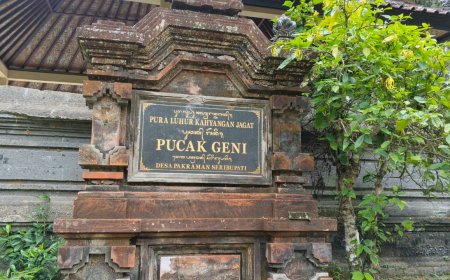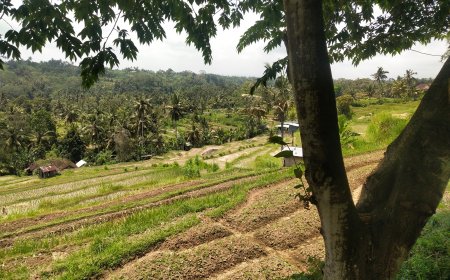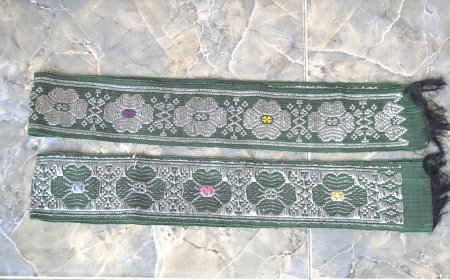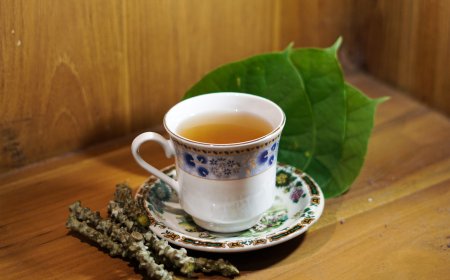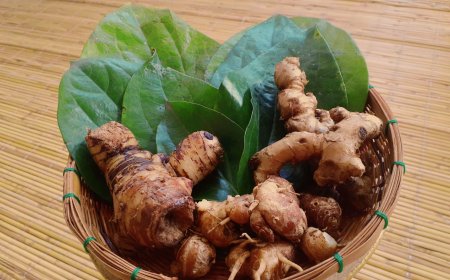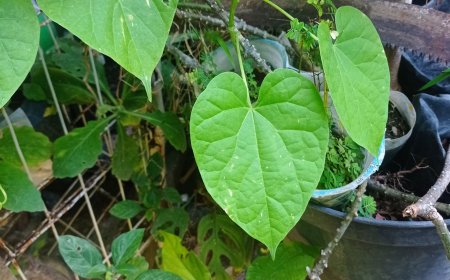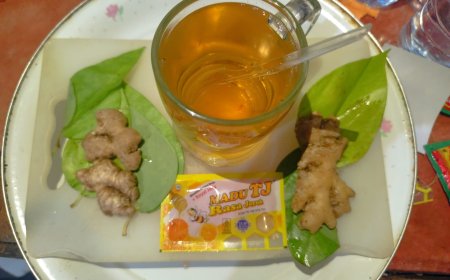The Benefits of Linglang Orange in Treating Phlegm Cough in Usadha Tiwang
Traditional medicine not only reflects the medical policies of a society but also plays a crucial role in cultural heritage. In Bali, an island rich in traditions and culture, traditional medicine has deep roots. Traditional medicine that specifically contributes to the health of the Balinese people is Usadha. One well-known type of Usadha is Usadha Tiwang.
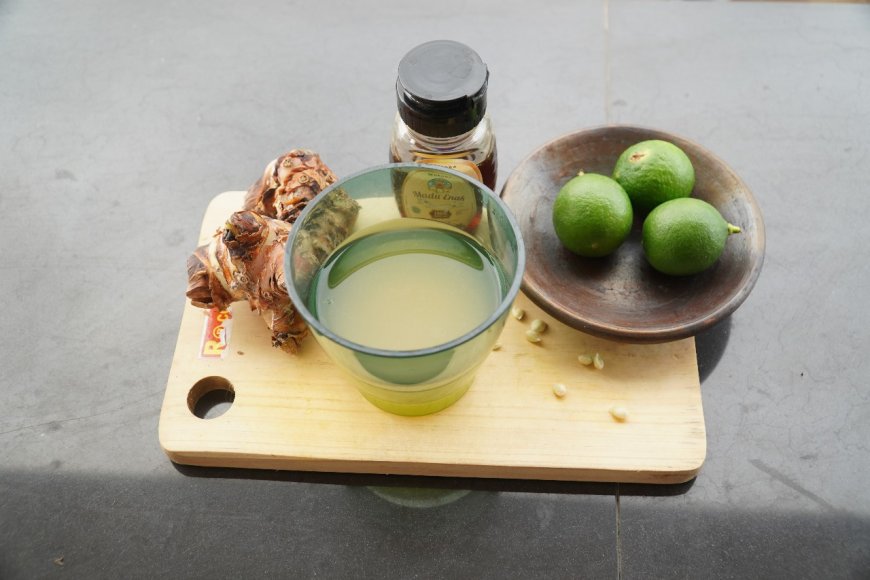
Usadha Tiwang is a traditional healing practice originating from Bali and passed down from generation to generation. Its primary focus is on addressing Tiwang disease, characterized by symptoms such as weakness, pain, restlessness, squinting eyes, stiff muscles, and even fainting. However, one of the unique features of Usadha Tiwang is its ability to treat various health issues, including phlegm cough.
Phlegm cough is a condition that often causes discomfort and disrupts daily activities. This type of cough is accompanied by thick mucus that is difficult to expel, and it can have various colors, such as clear, yellow, green, or even containing blood. Usadha Tiwang provides a natural solution for treating phlegm cough, with one of its essential components being Linglang Orange.
Linglang Orange, or more commonly known as Lime (Citrus Aurantifolia), is not just a fruit that provides a refreshing taste but also a key element in the Usadha Tiwang concoction—a traditional Balinese remedy that has transcended generations to address phlegm cough. In Usadha Tiwang practice, the most valued part of this citrus is its water, believed to possess remarkable healing properties.
The primary advantage of Linglang Orange lies in its exceptionally high vitamin C content. Vitamin C is recognized as an essential nutrient that plays a crucial role in enhancing the immune system. In the context of treating phlegm cough, vitamin C is crucial in supporting the body's recovery from viral and bacterial infections, which are often triggers for coughing.
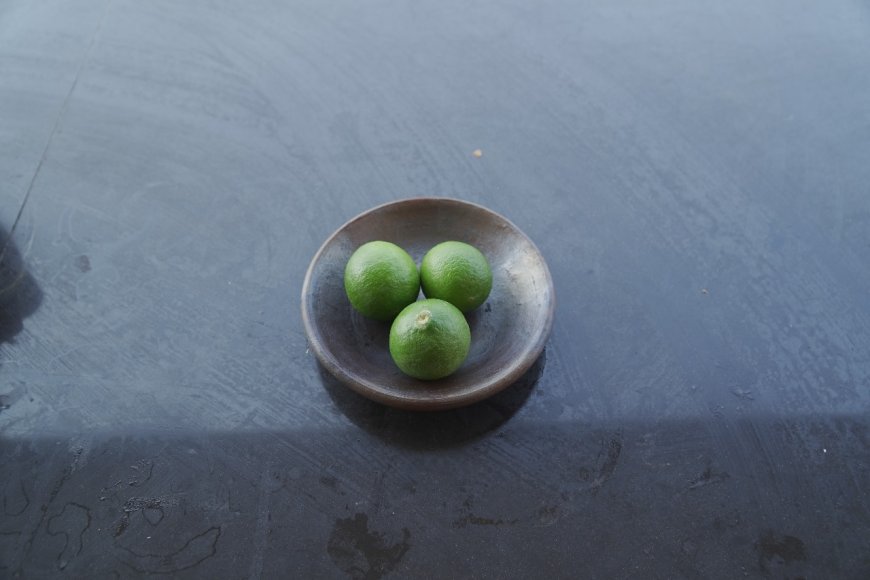
Linglang Orange (Photo Source: Author's Collection)
Moreover, the presence of a Flavonoid named Narigin in Linglang Orange reinforces its success as a primary ingredient in the Usadha Tiwang concoction. This flavonoid exhibits antitussive properties effective in relieving coughs and even halting unwanted cough reflexes. Beyond providing relief for phlegm cough symptoms, narigin enhances comfort for those experiencing this condition.
Linglang Orange not only provides physical relief but also positively impacts other aspects of health. The antioxidant content in this citrus helps alleviate inflammation and soothe throat irritation. When the throat is irritated and inflamed due to phlegm cough, antioxidants offer a calming effect, creating a conducive environment for healing.
The antibacterial and mucolytic aspects of Linglang Orange are also appealing. Its antibacterial properties help fight bacterial infections that may be the cause of cough, while its mucolytic nature softens and breaks down mucus, aiding in clearing the respiratory passages. Thus, this citrus becomes a key element in holistically addressing phlegm cough symptoms.
In an era where modern medicine is increasingly dominant, the use of Linglang Orange in Usadha Tiwang signifies that traditional treatments still have their place. Its success in alleviating phlegm cough is not solely based on its chemical properties but also on cultural heritage and local wisdom that has stood the test of centuries.
Through a profound understanding of the benefits of Linglang Orange in addressing phlegm cough through the Usadha Tiwang concoction, we can appreciate the natural and cultural wealth that has positively contributed to the health and well-being of the Balinese community. It is not just about medicine; it's about preserving the traditional heritage that enriches the relationship between humans and nature.
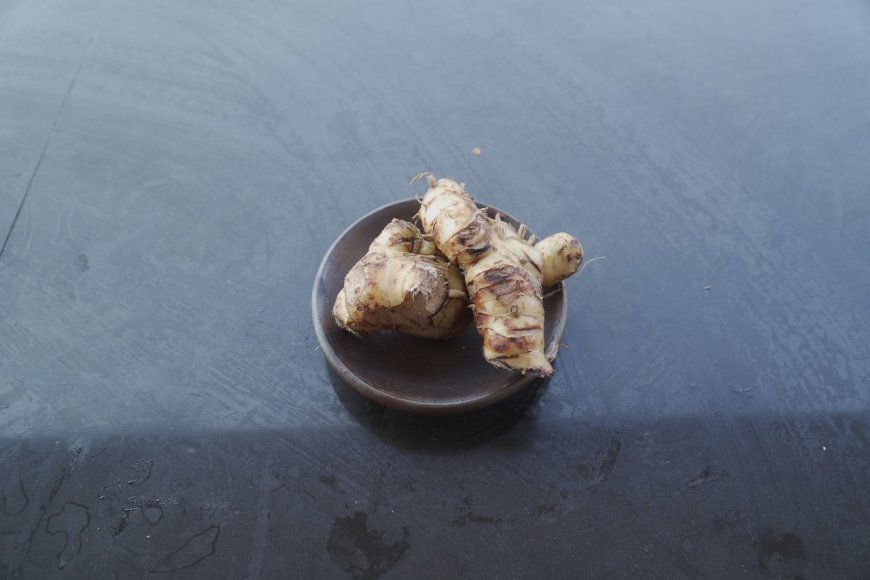
Galangal (Photo Source: Author's Collection)
Apart from Linglang Orange, other ingredients also play a role in crafting traditional medicine for phlegm cough. Two additional ingredients used are Rimpang Isen or Galangal and Honey. Here are the steps to make traditional phlegm cough medicine according to Usadha Tiwang:
1. Wash and peel Galangal thoroughly.
2. Then, cut the Galangal into smaller pieces.
3. Take an adequate amount of water and pour it into a pot.
4. Put the pieces of Galangal into the pot and boil until it reaches a boiling point.
5. After boiling, strain the resulting infusion into a glass.
6. Following that, take one Linglang Orange and cut it into two halves.
7. Then, squeeze the Linglang Orange into the glass containing the boiled water.
8. Next, pour honey into the boiled water and stir everything evenly.
9. The phlegm cough remedy is now ready to be consumed.
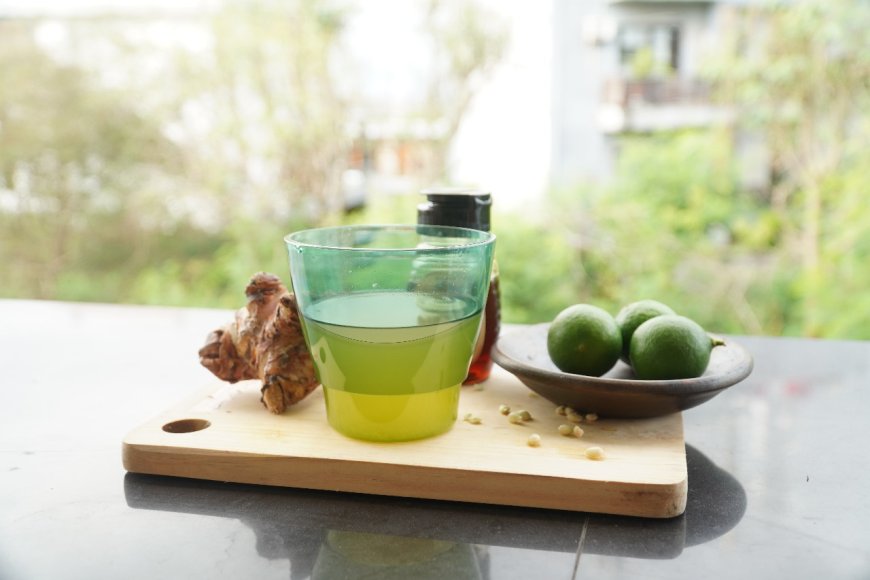
Usadha Tiwang to Treat Cough with Phlegm (Photo Source: Author's Collection)
The concoction prepared to address phlegm cough is recommended to be consumed three times a day, in the morning, afternoon, and evening. This habit helps maintain consistency in treatment. Besides providing relief for phlegm cough, this concoction also offers additional health benefits through the combined efficacy of Linglang Orange, Galangal, and honey. By regularly consuming it, not only are phlegm cough symptoms addressed, but the body also benefits from the vitamin C, antibacterial properties, and the gentleness of honey in supporting the immune system. This is a natural and holistic approach to healthcare, in line with the philosophy of traditional Balinese medicine.
Usadha Tiwang and its concoction showcase deep local wisdom in utilizing natural ingredients for traditional healing in Bali. The focus on Linglang Orange as a crucial component in this concoction not only provides a solution for phlegm cough but also reflects local wisdom and the natural richness passed down from one generation to the next.
In a modern era where conventional medicine is on the rise, traditional treatments such as Usadha Tiwang with Linglang Orange remain relevant and have their own place. This concoction is not just a remedy; it embodies cultural values and traditional wisdom that shape the identity of the Balinese society. The use of Linglang Orange as a primary ingredient demonstrates how the local natural wealth can be wisely utilized to maintain health.
Through a deep understanding of the benefits of Linglang Orange in treating phlegm cough through the Usadha Tiwang concoction, we can better appreciate the natural and cultural wealth that positively contributes to our health and well-being. This serves as a call to preserve and nurture traditional heritage that has provided benefits for centuries while remaining open to innovations that enhance overall health and quality of life.




